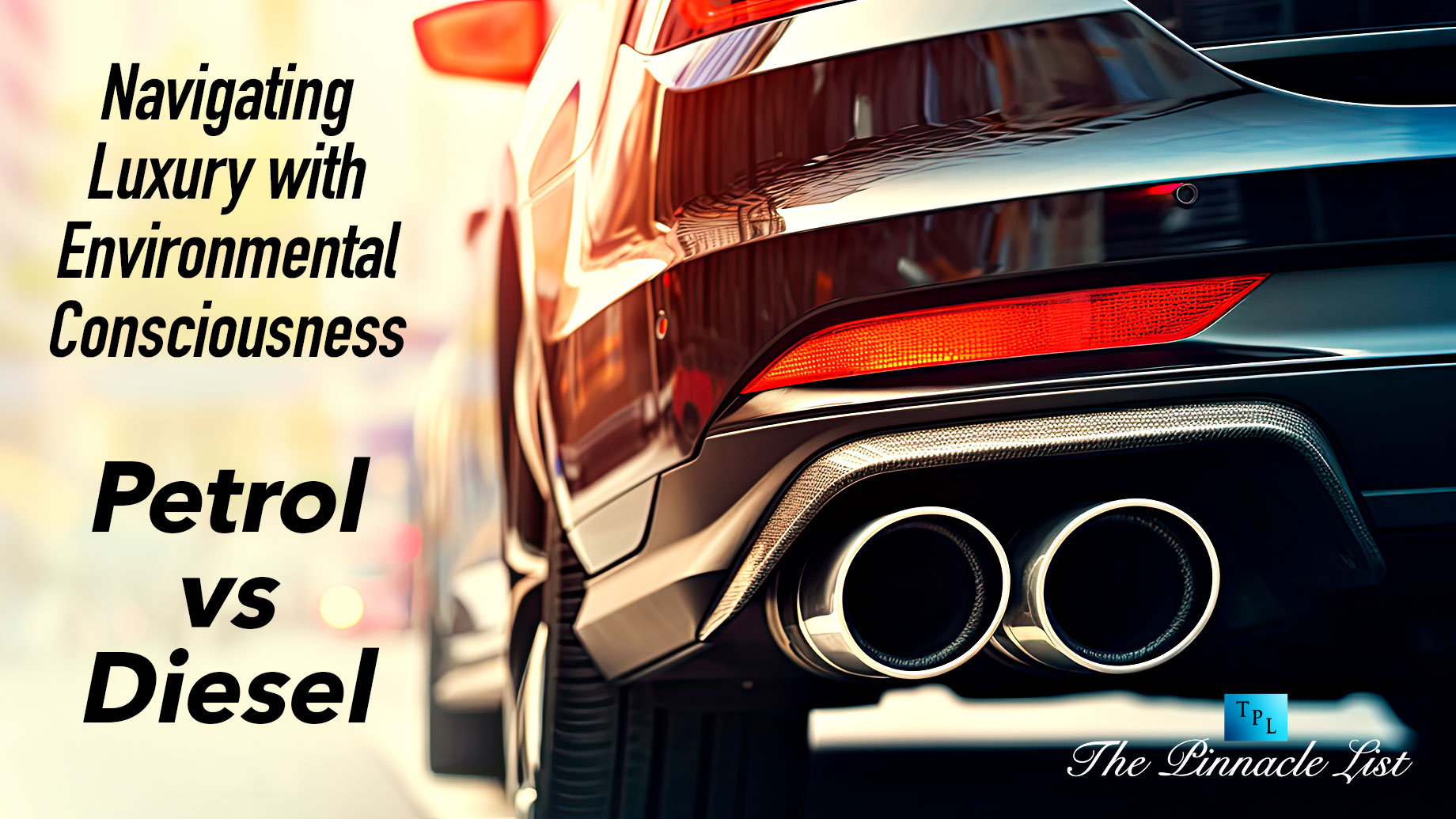
In the sphere of luxury living and premium real estate, every choice we make is a testament to our personal brand of elegance, comfort, and increasingly, our commitment to environmental stewardship. This extends to our automotive preferences, with the environmental impact of petrol and diesel engines being a hot topic for those who navigate the corridors of affluence and responsible living.
The Diesel Debate: Efficiency vs. Emissions
Diesel engines have long been lauded for their superior fuel efficiency and somewhat reduced carbon dioxide (CO2) emissions, a selling point for many environmentally conscious individuals. However, this narrative experienced a seismic shift with the uncovering of higher nitrogen oxides (NOx) and particulate matter (PM) emissions from diesel, substances with well-documented environmental and public health impacts.
Emissions Scandals: A Shift in Perception
The luxury automotive sector was not left unscathed by the emissions scandals that began with Volkswagen in 2015, and subsequent investigations revealed that other manufacturers, including prestigious brands, were involved. These controversies accentuated the importance of transparency and environmental responsibility, elements that are becoming increasingly integral to the luxury lifestyle.
Petrol Engines: A Different Side of the Coin
Amidst these challenges, diesel’s counterpart, petrol, while not without its environmental drawbacks, typically releases lower levels of NOx and PM. However, petrol engines’ lower efficiency and higher CO2 emissions per mile continue to be a significant concern, prompting further debates and research into the sustainability of our fuel choices.
The Affluent’s Role in Environmental Innovation
As affluent individuals and families, we are uniquely positioned to drive change and demand innovation within the automotive industry, ensuring that the vehicles we drive reflect not only our status but our commitment to protecting the planet.
Technological Advances: Steering Towards Sustainability
The industry has witnessed transformative environmental innovations, such as Selective Catalytic Reduction (SCR) and Diesel Particulate Filters (DPF), aimed at reducing the ecological footprint of vehicles. The emergence of hybrid technologies, particularly in the luxury segment, signals a forward-thinking compromise between performance, elegance, and environmental responsibility.
Seeking Accountability: The Path Forward
However, embracing future innovations also means addressing past and present discrepancies. If you’ve purchased or leased a luxury vehicle implicated in the emissions scandals, taking legal action is a step towards accountability and fostering transparent practices within the automotive sector. For Nissan owners seeking to file emissions claims and contribute to setting a new standard in the industry, comprehensive guidance is available. Learn more about your options and the process at Emissions.co.uk.
Conclusion: Luxury, Responsibility, and Legacy
Our choices, especially in the context of luxury and lifestyle, echo into the broader world, influencing industries and environmental practices. As we continue to indulge in the luxury that life affords, our collective voice and actions will shape the legacy we leave for future generations, merging affluence with conscientious living.